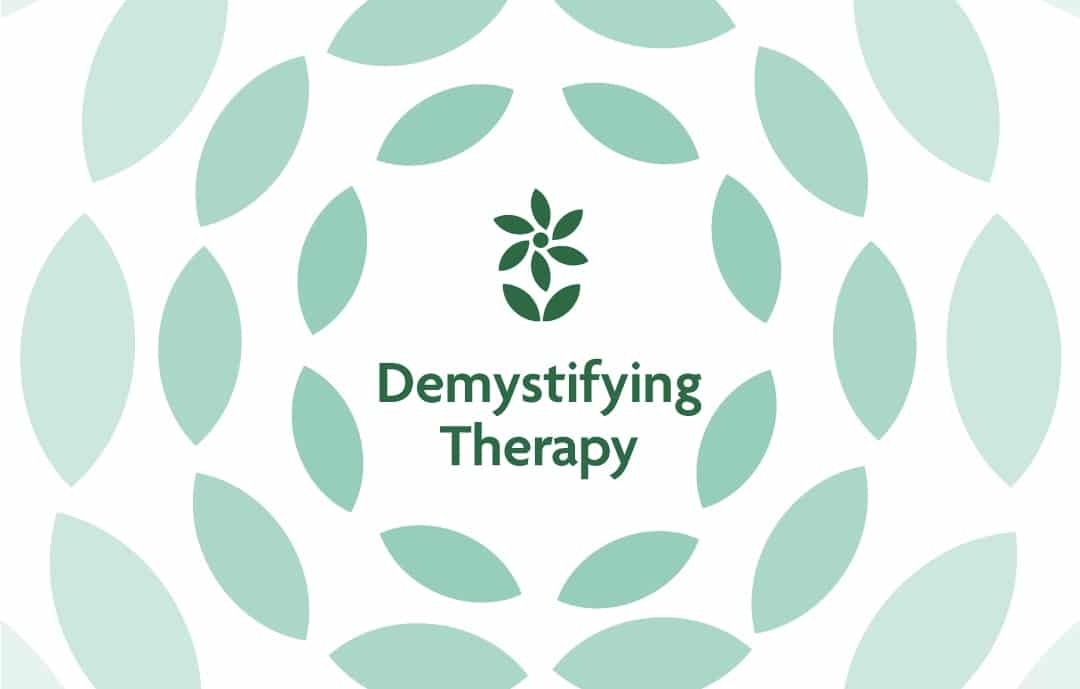
While therapy has become much more normalized in recent years, the truth is there’s still a lot of mystery and stigma surrounding it. People tend to have a lot of questions surrounding the topic of therapy, and that uncertainty can serve as a hindrance to embarking on the betterment journey.
People who have never tried therapy typically have a lot of question marks circling around in their mind. That’s why we’ve put together a list of FAQs that we tend to see. We have answered these FAQs to provide a sense of clarity and comfort around the idea of considering therapy. Without further adieu, here is part one of the Therapy FAQ’s list:
Is therapy helpful for people who are experiencing average problems but who are not in crisis?
One of the most common misconceptions around therapy is the notion that it’s for a certain type of people with a certain type of problem. That couldn’t be farther from the truth.
The beautiful thing about therapy is that it can be helpful for everyone. No matter what you’ve been through/are going through, whether you’ve had trauma or just need someone to hear you out, therapy is here for you. There is no problem too big or too small for therapy to aid.
Going to therapy does not mean there’s something wrong with you, or that you’re weak. In fact, it means that you are strong for asking for help, stepping out of your comfort zone, and doing the hard work towards a better life.
Why do individuals seek therapy? Why go to counseling in the first place?
People seek therapy for any number of reasons. From chronic struggles with mental health to recent life changes to unpacking past trauma to needing some relationship support – the list goes on and on.
Whatever your situation and need, therapy is an excellent method for developing a toolbox that you can carry with you for the rest of your life. Counseling can provide a safe space to be vulnerable with yourself (and/or with others) and to see things from a different perspective.
For some individuals, seeking therapy comes at a critical point in their lives. For others, it arises naturally as a part of their self-care efforts; and for many others still it starts as the former and continues as the latter. People from all walks of life seek and benefit from therapy. The beauty of therapy is that there is no one size fits all approach, and each individual’s unique situation is what informs their custom-tailored path.
What should I talk about in therapy?
Therapy is a safe space to talk about absolutely anything. Some people find that intimidating for a number of reasons. Not knowing where to begin, not feeling comfortable opening up or being the center of attention are all common mental blocks in therapy, and that’s perfectly normal.
At Kennedy Counseling Collective, therapy moves at your pace; there’s nothing to fear because you will never be forced to share something you aren’t comfortable sharing. If you’re not sure where to begin, your therapist will help nudge you in the right direction. You can expect to be asked open-ended questions which serve as a tool for getting your stream of consciousness flowing. If ever you feel uncomfortable answering a certain question or delving into a specific topic, just say so and your therapist will respect those boundaries.
When you start therapy you can rest assured knowing that your clinician is well equipped to provide the necessary framework to ease things along. All you need to do is show up, try to relax, and keep an open mind.
How long will my therapy session last?
Typical therapy sessions are an hour long (well, 50 minutes to be exact!), but you can always work with your clinician to tweak your session duration to meet your specific needs. If you only have attention for a half hour (think kids), or you feel 90 minutes (especially couples or family work!) would serve you better, that may be an option. That said, we wouldn’t recommend making a habit of half hour sessions as it does take some time to get conversation flowing and peel back the layers necessary to make progress. The hour is a standard for a reason!
How often will I attend therapy?
When it comes to frequency of sessions, everyone is different. After your initial meeting with your therapist, they will likely recommend a cadence that they feel is appropriate for your goals. That could be once a week, or it could be twice a month, or something entirely different. It’s often beneficial to start with a high frequency and then slowly ease into less. Ultimately it’s up to you to decide what feels right, but you can rest assured that your therapist will provide support in finding that sweet spot.
How do I find the right therapist for me / know if they are a right fit?
Finding the right therapist can feel intimidating, but it doesn’t have to. Of course, beyond finding someone who specializes in your specific area(s) of need, you want to find someone who you actually connect with. The good news is, group practices have multiple therapists on their team and will match you to the right fit based on some initial information you provide.
When you have your first meeting with a therapist, it will usually take some time to warm up and feel totally comfortable – that’s just the nature of being human. If you feel like you’ve given your therapist a chance, shared any concerns without resolve, and you’re still just feeling off about the chemistry, or feeling judged or otherwise unhappy with the fit, then you can always try again with someone else. Finding a good fit is important to the success of your endeavor and there is no pressure for you to commit to something that doesn’t feel right.
Will my therapist judge me?
Therapy would not be productive if your therapist judged you all the time. You may be thinking, ‘well they’re only human so how could they not judge me?’, but therapists are highly trained to find the balance between understanding when they themselves are reacting to something and need to bring it back to their own supervisor, and when there is something coming up for you that you would benefit from reflecting on.
You should feel safe with your therapist, even when discussing the most vulnerable topics. In therapy, the goal is to discuss difficult topics, decisions, characteristics, thoughts and feelings while being met with compassion and support to grow.
Fear of judgment and shame is a part of being human, so it can be hard to shake the anxiety enough to begin therapy. After a few sessions, ask yourself if you feel safe and understood. If you have any concerns, your therapist will want to hear them, so you can always bring this up in your session.
How can therapy help?
Therapy can be beneficial in a wide variety of ways, and everyone experiences those benefits in their own way.
Therapy can:
- Help individuals get comfortable being honest and vulnerable with their self and others
- Provide fresh perspective on life situations, dynamics, and patterns
- Provide a safe space for couples or family members to reduce conflict and increase connection
- Guide the development of life-long tools such as navigating conflict, managing anxiety, and building healthy habits
- Be an integral part of a healthy self-care routine
- Save lives and help combat depression
- Shed light on the path towards self-betterment
- Aid in trauma processing
- Give way to self-acceptance
- And so much more…
No matter your situation or needs, therapy can certainly help in more ways than one.
Do therapists prescribe medication?
A common misconception about therapists is that they can prescribe medication. In fact, therapists cannot write prescriptions. If your therapist feels that therapy alone is not enough for your particular needs, they can refer you to a psychiatrist or a primary care doctor who can prescribe the necessary medications. If that’s the case, your therapist can collaborate with your team.
Why go to therapy when my friends/family already provide a good support system?
Having a good support system is a wonderful thing, but it’s not a stand in for therapy for several reasons.
First of all, friends and family are not trained to truly listen and leave judgment and opinions at the door. Going to therapy allows you to open up in a non-judgemental space without being swayed one way or the other. A therapist will guide you to gain insight and confidence, not just vent.
Second, the things you might talk about in therapy often concern your friends and family. Therapy allows you to open up about all aspects of your life in a way that you can’t necessarily do with the people who are closest to you.Therapists understand relationship patterns and behaviors in a way that will help you to make choices based on what you want and need in your life.
Third, treating your friends and family like your therapist could cause a strain on your relationship. While it’s healthy to have open communication with your loved ones, relying on them too much to listen to your problems and feelings can result in the rise of tension. A therapist can help you decide how you’d like to speak with people in your life.
No matter how strong your support system is among your loved ones, there is a big difference between opening up to them and opening up to a professional. The relationships we have in life each serve their own purpose, and none can serve them all.
What if my therapist asks me questions that I’m not comfortable answering?
When you’re in a therapy session and you feel like the conversation is encroaching on the boundaries you don’t feel comfortable crossing, you can always say so. Let your therapist know what areas you are not ready to discuss at the start, or tell them what makes you uncomfortable as things come up. The beauty of therapy is that it’s completely on your pace, so if you ever feel too far out of your comfort zone then you can always draw the line and expect that should be respected.
That said, therapy is the best place to push the boundaries of your comfort zone around being vulnerable. While your therapist should never push you to answer questions that you’re not comfortable answering, they may try to help you understand why those questions are triggering. As you attend more sessions, you may set a goal to begin exploring the more tough questions, all in due time.
If you have any questions that you feel you’d like to explore further, we’re always here to chat. You can reach out to support@kennedycounseling.com with any questions, comments, or concerns you may have.
As always, Kennedy Counseling Collective is here for you.
